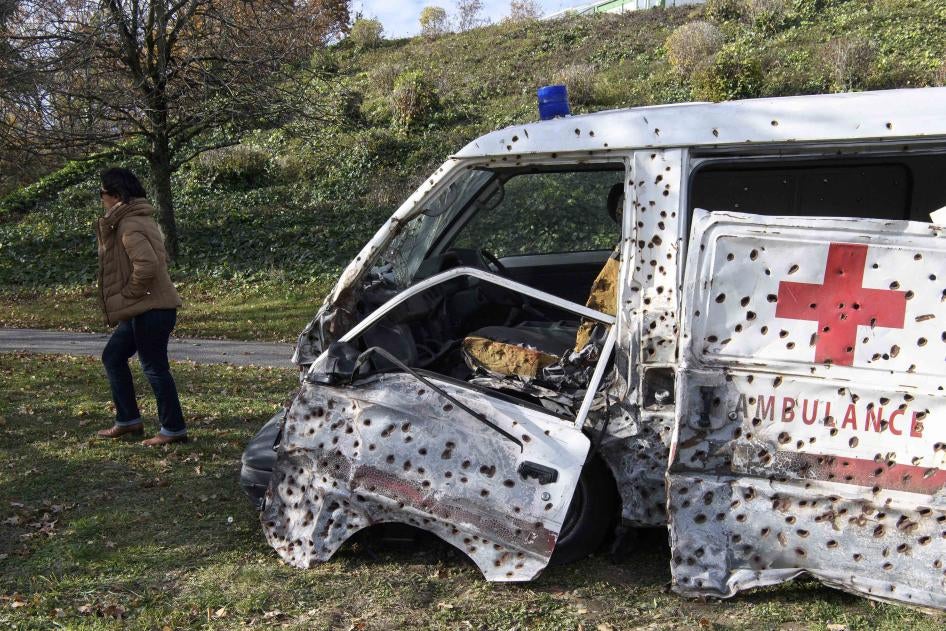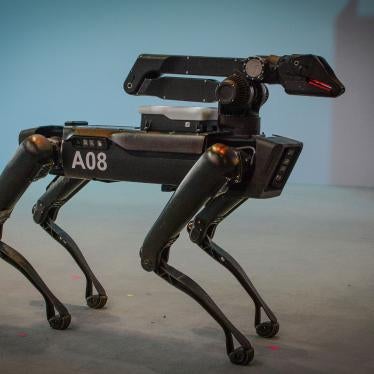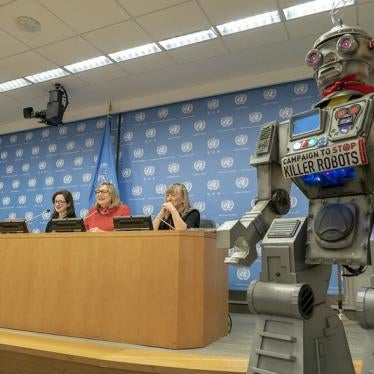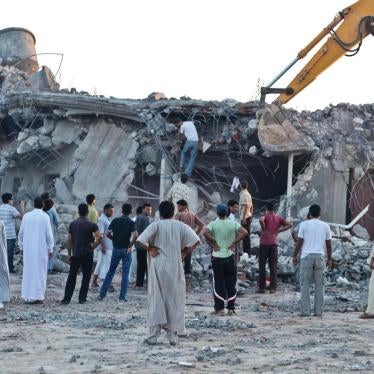The Geneva-based International Committee of the Red Cross (ICRC) is calling on governments to ban fully autonomous weapons.
ICRC President Peter Maurer said yesterday that he hopes the humanitarian organization’s public backing for new legally binding rules to prohibit and regulate autonomous weapons will help spur “political action at the international level” and “collectively draw a line that is in the interest of people” and “ultimately, our shared humanity.”
As technology develops rapidly, the ICRC has found that the laws of war “do not provide all the answers” to ensure that commanders and weapon operators retain sufficient human control over weapons systems.
The increased use of weapons systems with autonomy in today’s armed conflicts underscores the importance of creating a new international legal standard now, before it is too late. A United Nations report issued last year details how fighters in Libya “were subsequently hunted down and remotely engaged” by the Turkish-manufactured STM Kargu-2 loitering munition. During the recent conflict over Nagorno-Karabakh, Azerbaijan government forces used various loitering munitions, such as the Harop developed by Israel Aerospace Industries.
Once launched, this so-called “suicide drone” loiters in the air for a period searching for a target, which it attacks once detected. Regarded by the ICRC as the only real form of “offensive” autonomous weapon deployed today, loitering munitions are configured to allow the human operator to monitor and intervene in its operation.
Since 2018, United Nations Secretary-General António Guterres has urged states to move to prohibit weapons systems that could, by themselves, target and attack human beings, calling them “morally repugnant and politically unacceptable.” Last year, Pope Francis warned lethal autonomous weapons systems would “irreversibly alter the nature of warfare, detaching it further from human agency.”
Dozens of countries have expressed support for negotiating a new international law to prohibit and restrict autonomous weapons. But major military powers – most notably Russia and the United States – have repeatedly thwarted moves to begin negotiations, arguing it is “premature” to attempt regulation.
Frustration over the lack of progress in diplomatic talks suggests a new process should be undertaken to negotiate an international treaty on killer robots that many countries seek.
The ICRC decision may mark a turning point, given that no international arms treaties have been adopted in recent decades without its support and participation. As the guardian of international humanitarian law, the ICRC is an indispensable partner for governments, UN agencies, and nongovernmental organizations working to protect civilians during armed conflict.









